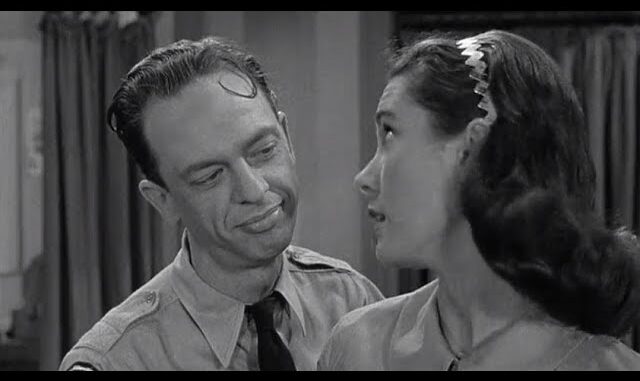
The telephone, in the mid-20th century, was more than just a device; it was a potent harbinger of news, good or bad, a direct conduit to the unseen machinations of fate. For Elinor Donahue, a talented actress already well-versed in the fickle currents of Hollywood, one such call, originating from the distinctive voice of Don Knotts, was not merely a job offer but a gentle seismic shift that rerouted the very trajectory of her life.
By the early 1960s, Elinor Donahue had already cemented her place in television history as Betty Anderson, the eldest child on the beloved family sitcom Father Knows Best. For six years, she had navigated the wholesome dramas of Springfield, becoming a familiar, comforting presence in American living rooms. But after the cameras stopped rolling on the iconic series, as is often the case in show business, a different kind of quiet settled. The steady rhythm of a hit show gave way to the uncertain beat of auditions, guest spots, and the perpetual search for the next meaningful role. Perhaps the sparkle had dimmed a little from the daily grind of delivering punchlines and perfecting on-screen smiles. Perhaps a certain weariness had set in, or a longing for something that felt genuinely different. She was a young woman, a mother, and an artist seeking not just work, but purpose.
Then came the call. It wasn't from a slick agent or an imposing studio executive. It was from Don Knotts. Anyone who knew Don Knotts, or even just his on-screen persona as Barney Fife, could imagine the unique flavor of that conversation. His voice, high-pitched and slightly reedy, likely carried that distinctive blend of nervous energy and earnest sincerity. He wasn't calling as a power broker but as a colleague, a friend, a genuine enthusiast.
The story goes that Don Knotts, already a beloved fixture as Deputy Barney Fife on The Andy Griffith Show, was acting on behalf of Andy Griffith himself. They were looking for an actress to play Nurse Michele, a potential love interest for Andy's character, Sheriff Andy Taylor. Don, with his inimitable charm, was the unlikely, yet perfect, emissary. He wouldn't have merely stated the job; he would have sold the Mayberry experience. He would have painted a picture of the idyllic, low-pressure set, the camaraderie, the genuine talent and warmth of the cast and crew. He would have, with every stammer and emphatic gesture (even unseen over the phone), conveyed the sheer joy of working on a show that was quietly, profoundly, changing the landscape of television.
Elinor, perhaps initially hesitant at the prospect of yet another sitcom, must have listened intently. This wasn't a call about high-stakes drama or groundbreaking artistic challenges. It was an invitation to a different kind of warmth, a different kind of humor – one rooted in character, relationships, and the gentle absurdities of small-town life. Don Knotts, through the magic of his voice and reputation, conveyed the spirit of Mayberry. He didn't just offer a role; he offered a home.
And she said yes. The decision, spurred by Don's unique persuasion, proved to be a profound turning point. Joining The Andy Griffith Show was stepping into a different world from the structured, family-centric Father Knows Best. Mayberry was a world of quirky characters, subtle humor, and an unparalleled sense of community, both on and off screen. Elinor Donahue found herself working alongside comedic geniuses like Andy Griffith and, of course, Don Knotts himself, whose on-screen chemistry with Andy was legendary. She was part of a show that, while seemingly simple, was crafting a timeless narrative of decency, friendship, and the quiet beauty of everyday life.
The role of Nurse Michele, though not as long-lasting as some, solidified Elinor's versatility and added another beloved chapter to her career. But beyond the professional credit, the call from Don Knotts brought something intangible: a renewed sense of purpose, a deeply fulfilling creative environment, and a profound connection to a show that would resonate for generations. It was a period of stability, joy, and collaborative artistry. It wasn't just a job; it was an experience that enriched her life, offering a counterpoint to the more traditional sitcoms she’d known, and allowing her to contribute to one of television’s most enduring legacies.
That single phone call, initiated by a man known for his nervous energy and boundless heart, was more than a professional courtesy. It was a whisper of destiny, a gentle nudging towards a path that would bring Elinor Donahue not just further recognition, but a deep sense of belonging and a cherished place in the annals of television history. It stands as a testament to how the seemingly small, personal gestures – a call from a friend, a colleague, an admirer – can, in their quiet way, change the entire landscape of a life. The echoes of Don Knotts’s voice, ringing through that telephone, still resonate, a sweet reminder of a life beautifully altered.